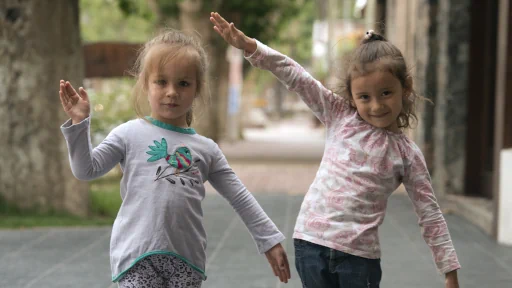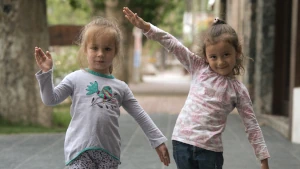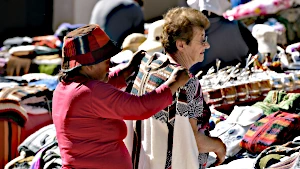Opinion Editorial January, 2026: 2026 Predictions: The Ironic Waltzing of Matildas

Even though the new year has only just begun, we can already make predictions about 2026 based on what happened in 2025 — just from last month. The forecast for the rest of us calls for intermittent waltzing with heavy showers of irony.
The global economy will waltz. We can't predict which new partners will step onto the dance floor, but we can be sure that all the usual suspects will remain there.
The "tech bros" will continue to deplete the planet's resources to create even more AI slop, foster even more student cheating and encourage even more suicides. They will begin to place AI inference data centers into orbit where the seeds of our potential demise will waltz in synchronization with our sun — ironically from which we came. One of those "tech bros" will see his net worth become a trillion dollars. His relentless endeavor will allow many more people to "marry" their AI partner.
Warlords will waltz. Some new ones will step onto the dance floor, but none will step off it. Their ceasefire and peace sincerity will waltz between pretense and sarcasm. Thailand and Cambodia will be the first prove that. The Burmese military will be the second. Russia will be the third.
The most poignant anti-war song ever written is "And the Band Played Waltzing Matilda". It was written fifty-five years ago by Eric Bogle shortly after he had waltzed from Europe to Australia. The most ironic news story last month also involves someone who waltzed from Europe to Australia. Matilda Poltavchenko was the youngest, at only ten years old, of those senselessly murdered in the name of religion at Bondi Beach, Australia. While Bogle's song is about Australians who waltzed into a justified war half a world away, Matilda had waltzed to Australia to escape a senseless war in her own country, Ukraine.
Migrants, refugees and asylum seekers will continue to waltz around the world in 2026. But to paraphrase Eric Bogle, year after year their numbers will get fewer. In 2026 in some parts of the world though, their numbers will get higher. Those parts will include the United Kingdom, Palau and the West Bank.
It is ironic that just last week — and 63 years after it ended — Algeria officially recognized its former French occupation as a crime. We can paraphrase Eric Bogle again and predict that someday, no Palestinian will march in the West Bank at all.
There will be no greater irony in any 2026 news story than last week's Israeli recognition of the statehood of Somaliland.
It might surprise some to learn that this month's photo was taken in Argentina. Cafayate is a small winery town in Salta Province. I was there at the same time that Matilda Poltavchenko was born. Normally, when young children see me pick up my camera they run away in shyness. Instead, these two girls insisted on posing like waltzing Matildas for a few shots. Perhaps our shared skin color overcame their shyness. Perhaps it was their presumed sharing of our religion.
They too are the outcome of people waltzing around the world. In fact, almost all of us are: Modern humans began waltzing around the world tens of thousands of years ago. Perhaps 2026 will be the beginning of the end of our waltzing. At least for the rest of us.
If you enjoyed reading this month's opinion editorial, please consider supporting independent, advertising-free journalism by buying us a coffee to help us cover the cost of hosting our web site. Please click on the link or scan the QR code. Thanks!




